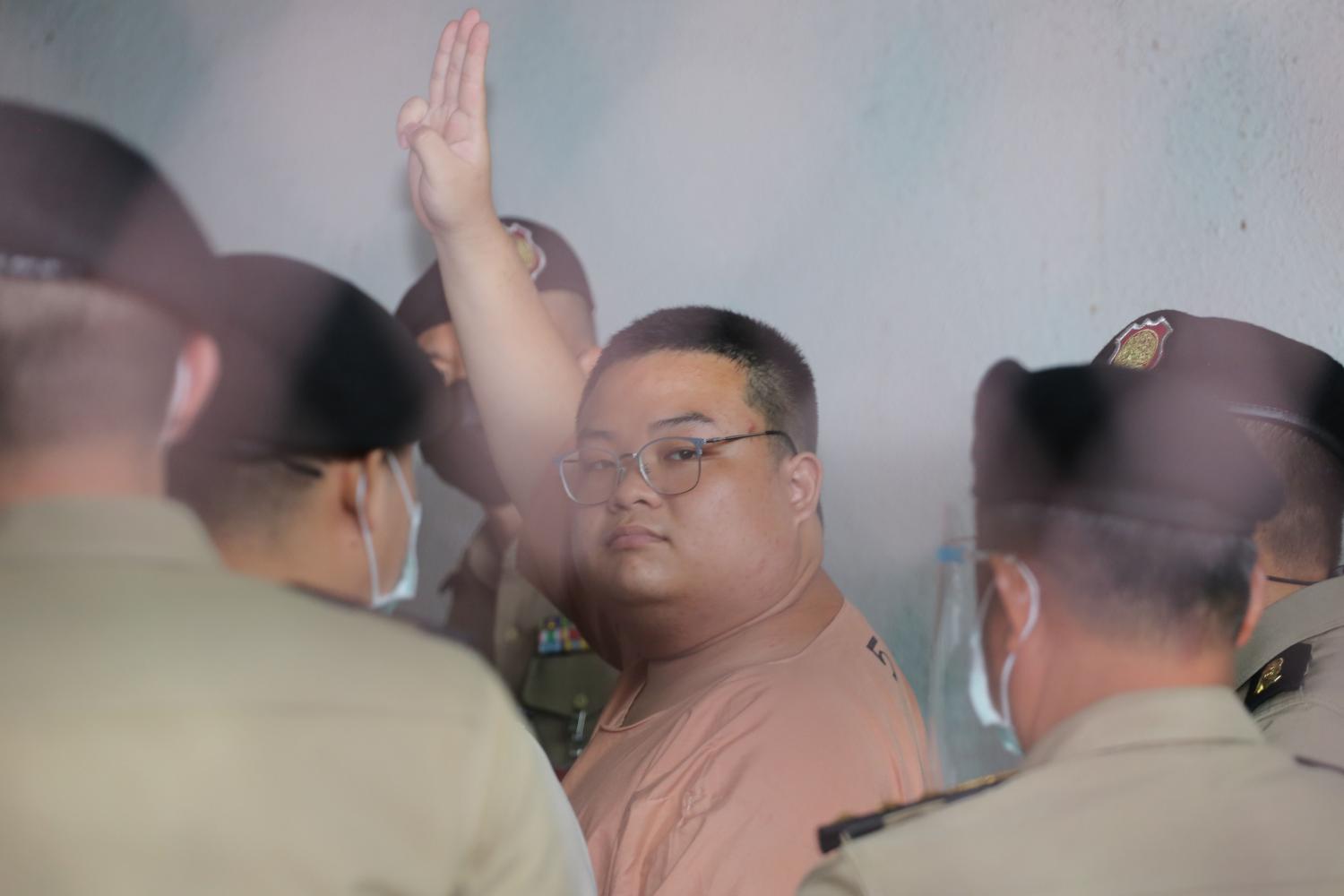
I have met political activist Parit "Penguin" Chiwarak twice in my career as a journalist. The first was five years ago when Parit was a precocious high school student at Triam Udom Suksa, a well-known high school in Bangkok. At that time, he had launched a campaign against the Thai education system that teaches students to be submissive.
The second time was last year, when he become a big shot on the Thai political landscape -- a prominent protest leader. His campaign this time was bold, ambitious and controversial -- including a demand for reform of the monarchy and an amendment to the constitution that he said leads to unfair elections, opening the door to former coup maker and current prime minister Gen Prayut Chan-o-cha to return as prime minister.
In our second interview, Parit is no longer young lad. As a political science student of Thammasat University and now leader of a mass political protest campaign, he is cerebral, calmer and more mature than his 23 years of age. He is more pensive, delving into his thoughts occasionally, before giving answers that are decisive and which elucidate his cause.
As a journalist, I have been groomed to be objective and put distance between myself and my "source". But I must admit I have been impressed by his lucidity, his ideas and his convictions.
For me, Parit has an unusual ability to dream big. He has a conviction to develop society and he strongly believes Thais deserve better. That is why Parit and the young political activists around him organised their political movement -- demanding that "flaws" in political institutions be rectified; flaws that people in society, including me, prefer not to touch as we do not want to disrupt the harmony in society. Yet Parit has had different view of "harmony" in Thai society which to him is just a thin layer covering the turbulent waters beneath.
In our last interview, Parit said he knew the risks he had taken on but said he was ready to face the consequences. "I am willing to take risks if it permits me to change things for the better," he said.
Parit and another six political protesters now have been detained in prison for two months. Parit is awaiting trial on multiple charges, including lese majeste and sedition linked to an anti-government rally at Sanam Luang last September. They have been denied bail nine times. The most recent refusal last Thursday prompted public questioning over the court's decision.
Being detained in prison, Parit still manages to campaign. Since March 15, he has gone on a hunger strike to accompany his demand that all political prisoners be granted bail.
Another political activist, Panusaya Sithijirawattanakul, also in detention, launched her own hunger strike 15 days later. On Friday, Parit was transferred to Ramathibodi Hospital from Bangkok Remand Prison after showing fatigue and signs of health deterioration.
When the anti-government protests were at their peak, many suspected there was a "mastermind" directing his actions. But the hunger strike shows Parit is his own man.
His campaign might prove to be too much for the 23-year-old university student. As a young boy growing up in Lampang, he had observed inequality in society, and asked questions about it, he told me.
He is also an avid reader. His favourite subject is history which has subsequently shaped his thoughts and developed his ideology.
He has his dreams and passions. He told me in our first interview five years ago that he want to be a historian. Yet his political campaign as well as his upcoming trial may cost him his dream career.
"Now I'm not sure whether I can still pursue this dream any more. I'm a part of the ongoing student protest, which I may need to trade off with my dream. It's a choice I've made. I want to see the better version of Thailand, in which everyone is equal in opportunity and power," he told me in our latest interview.
"Opportunity" for Parit has a different meaning too -- the freedom for individuals to have dreams and pursue them. If you want to be a historian, you can be a historian without fearing that you will not be able to feed yourself or lead a decent life.
Unfortunately, not everyone in Thailand can live the dream. You can't immerse yourself in a pile of books and become a historian if your family still lives hand to mouth.
Parit said he observed his childhood friends' lost opportunities, coming as they did from disadvantaged backgrounds in Lampang.
"I was the most fortunate child in my neighbourhood," he said.
"My parents could afford to send me to study in Bangkok. Only three out of 10 children in my neighbourhood, including me, managed to enter university. The rest are struggling with life."
"When I look back, it reminds me of the disparity that plagues Thai society. It did not go away even when I was growing up. If political institutions are good and effective, disadvantaged people can have more and own the chances to live a better life."
For him, democracy is the answer as it is the means to empower people, induce equality and fairer resource distribution instead of leaving power and resources concentated in the hands of a few.
Parit told me that history books also offer lessons and examples -- that the upper echelons do not last long in many countries.
So, despite many begging him to end his political campaign and his hunger strike, he still persists with his campaign, in the belief that the history of social inequality may not repeat itself forever.
Paritta Wangkiat is a Bangkok Post columnist.
